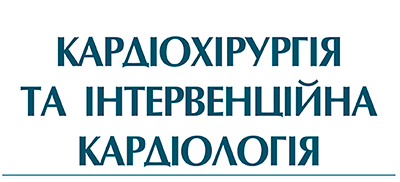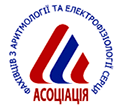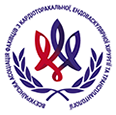Original research
DOI: http://doi.org/10.31928/2305-3127-2020.1.1114
Experience of tricuspid valve replacement: immediate and long-term results
G.I. Darwish, M.F. Rotari, N.S. Gnoianko
Heart Institute, Ministry of Health of Ukraine, Kyiv, Ukraine
The aim – to evaluate the efficiency and safety of tricuspid valve replacement (TVR) either as an isolated procedure or in combination with other procedures.
Materials and methods. This study focused exclusively on patients who had TVR as an isolated procedure or in combination with other cardiac surgery interventions. The data of 33 patients were analyzed (period from May 2010 to August 2019). Bioprosthetic replacement of the tricuspid valve was performed in all cases.
Results. In 15 (45.5 %) cases, the tricuspid valve failure was caused by infectious endocarditis, in 14 (42.4 %) – by the rheumatic process. Other causes of tricuspid valve lesions were Ebstein anomaly in two cases, post traumatic tricuspid valve regurgitation in two cases. Ten patients (30.3 %) had earlier cardiac surgery, in 16 patients (48.4 %) TVR was performed concomitantly with other procedures. Postoperative complications occurred in total in 12 (36.3 %) patients. Among those who underwent surgery and were discharged, during the initial period of 3 to 5 years survival rate ranged from 86.3 % to 89 %.
Conclusions. The results of our observation show that isolated TVR surgery is safe and associated with low mortality. The category of patients with rheumatic multiple valve lesions entails an additional risk as a result of multiple procedures that have to be performed. The long-term results of the TVR are not worse than the results of the valve-saving reconstruction.
Key words: tricuspid valve replacement, infectious endocarditis.
| [PDF] | [References] |








